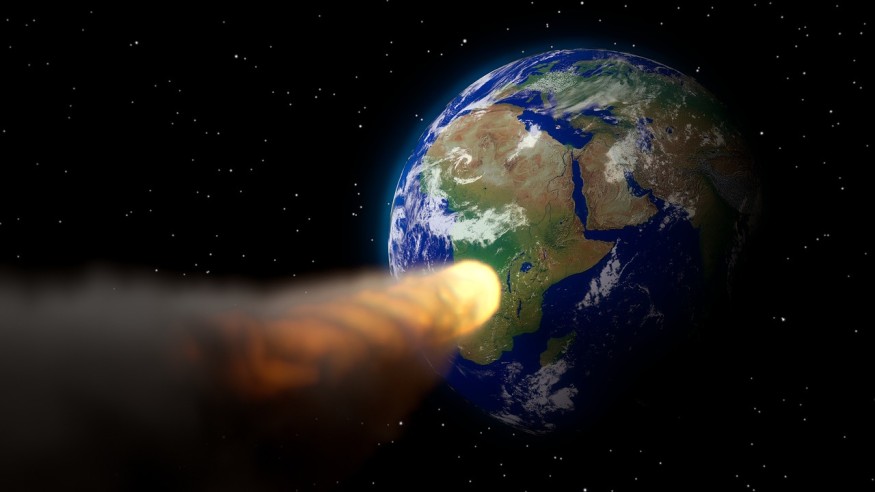Astronomers recently discovered the Olympic-swimming-pool-sized space rock that has a small chance of hitting Earth on Valentine's Day 2046. But how many asteroids are on a course of crashing into the planet?
Scientists said that none of the asteroids they are currently monitoring pose any serious threats. However, there are several asteroids that have the potential to hit Earth in the coming centuries that space agencies are closely monitoring.

Ranking 'Potentially Hazardous Asteroids'
According to MailOnline, very large asteroids as big as the one that killed the dinosaurs are deemed extremely unlikely to hit Earth. Football-field-sized asteroids only hit Earth every 2,000 years, while civilization-ending asteroids only crash into Earth every few million years, and any rocks of this size are also closely monitored.
NASA said that over 100 tons of space rocks hit the planet, but most of them are too small that probably burn up in the atmosphere or cause minimal damage.
Still, small rocks can have an impact like the Chelyabinsk meteor in 2013. It injured 1,500 people in Russia when the 59 feet space rock exploded. It also damaged 7,300 buildings due to the intense overpressure generated by the shockwave on Earth's surface.
Today, NASA and other space agencies continue to monitor "Potentially Hazardous Asteroids." Space rocks are ranked on their likelihood of crashing into Earth using the Torino Scale in which 0 is the lowest and 10 is the highest score. At present, no asteroid is ranked above one.
READ ALSO: Largest 'Potentially Hazardous' Near-Earth Objects Predicted To Have a Close Flyby in 2023
Asteroids on Course To Hit Earth
Early sightings of asteroids are often brief; and as scientists collect more data, the likelihood of collision decreases. But here are some of the space rocks that would likely hit Earth in the next centuries:
2023 DW
This 160-foot asteroid could cause an explosion similar to the Tunguska event that flattened over 80 million years. At first, NASA and other space agencies estimated that it has a 1-in-600 chance of hitting. But after collecting more data, they concluded that it has a lesser chance of crashing into Earth.
ESA's planetary defense office head Richard Moissl said that it has now a 1-in-1,584 chance of hitting Earth on February 14, 2046, which is a significant reduction from initial estimates.
Bennu
NASA's Osiris-Rex spacecraft visited Bennu in 2020 to collect material from its surface. The space rock is 4.5 billion years old, and scientists estimated that it has a 1-in-2,700 chance of impacting Earth on September 24, 1982.
Professor Dante Lauretta from the University of Arizona explained that the impact Bennu could cause on the planet would be three times more energy than all nuclear weapons ever detonated in history. He noted that it will be equivalent to 1,450 megatons of TNT.
2010RF12
Asteroid 2010RF12 is the most likely to hit Earth within the century, specifically on September 5, 2095, with a 1-in-1 chance of crashing into the planet. However, scientists said that it is pretty tiny in size at only about 21 feet in diameter.
1950 DA
Asteroid 1950 DA is about half a mile and has a fairly high risk of hitting Earth with a 1-in-34,000 chance. It has been given a high rank due to its size, but it will not arrive for another eight centuries. NASA said that there will be at least 35 generations of humans to deal with the problem.
Toutatis
This asteroid is quite huge, measuring about three miles wide. It came close to Earth in 2004 when it was about four times the distance between the Earth and the Moon. But it will not pass by again until 2562 as NASA predicts.
RELATED ARTICLE: 165-foot Asteroid Estimated To Hit Earth in 2046 Now Highly Unlikely To Hit the Planet, NASA Says
Check out more news and information on Asteroids in Science Times.
© 2026 ScienceTimes.com All rights reserved. Do not reproduce without permission. The window to the world of Science Times.












